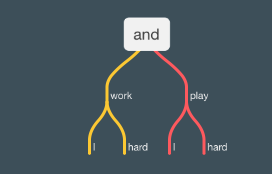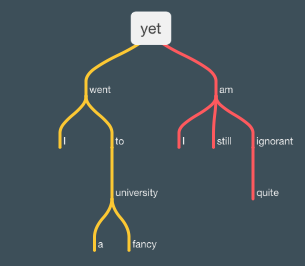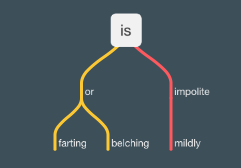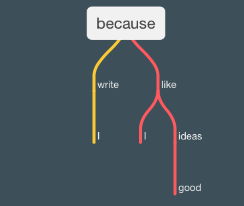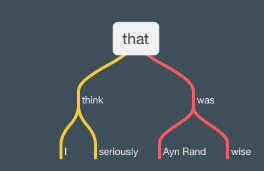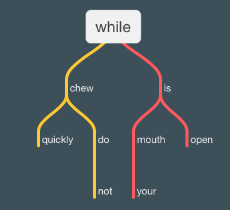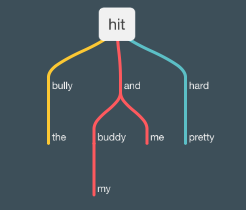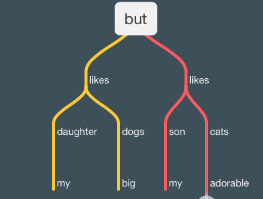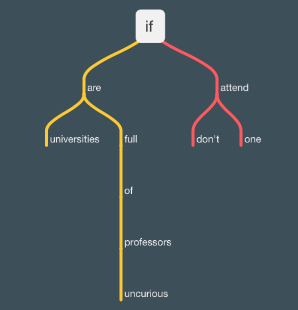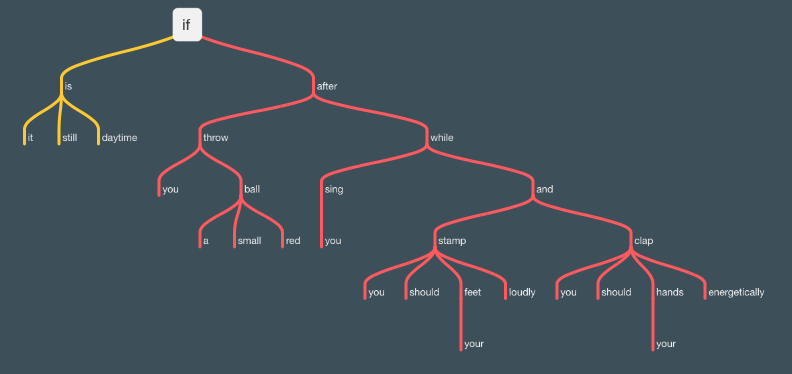I did some of the exercises in the wrong order because I ignored them by mistake at first. I have ordered this post in the order I did the exercises.
I’ll check tomorrow for errors.
exercises
I work hard and I play hard.
coordinating conjunction: and
clause: I work hard
- verb: work
- subject: I
- adverb hard
clause: I play hard
- verb: play
- subject: I
- adverb hard
3 min
I went to a fancy university, yet I’m still quite ignorant.
coordinating conjunction: yet
clause: I went to a fancy university
- verb: went
- subject: I
- prepositional phrase: to a fancy university
- preposition: to
- noun: university
- determiner: a
- adjective: fancy
clause: I’m still quite ignorant
- linking verb: am
- subject: I
- adverb: still
- complement: ignorant
- adverb: quite
Thinking about whether “still” modifies “am” or “ignorant”. I think it is “am”, because it says you are still something. It doesn’t work to say that ignorant is still, still what? Ignorant is not still “quite” at least. So “still” modifies “am”.
9 min
Farting or belching is mildly impolite.
linking verb: is
subject: farting or belching
coordinating conjunction: or
- noun phrase: farting
- noun phrase: belching
complement: impolite
adjective: mildly
6 min
I write because I like good ideas.
subordinating conjunction: because
main clause: I write
- verb: write
- subject: I
subordinating clause: I like good ideas
- verb: like
- subject: I
- object: ideas
- adjective: good
14 min
I seriously think that Ayn Rand was wise.
subordinating conjunction: that
main clause: I seriously think
- verb: think
- subject: I
- adverb: seriously
subordinating clause: Ayn Rand was wise
- linking verb: was
- subject: Ayn Rand
- complement: wise
5 min
- Don’t chew quickly while your mouth is open.
subordinating conjunction: while
main clause: don’t chew quickly
- verb: chew
- adverb: quickly
- verb phrase: don’t
- verb: do
- adverb: not
subordinating clause: your mouth is open
- linking verb: is
- subject: mouth
- determiner: your
- complement: open
10 min
The bully hit my buddy and me pretty hard.
verb: hit
subject: bully
determiner: the
object: my buddy and me
coordinate conjunction: and
- noun phrase: my buddy
- noun: buddy
- determiner my
- noun phrase: me
- adverb: hard
- adverb: pretty
I almost forgot “pretty hard”, but made a check so I included it.
5 min
My daughter likes big dogs, but my son likes adorable cats.
coordinating conjunction: but
clause: my daughter likes big dogs
- verb: likes
- subject: daughter
- determiner: my
- object: dogs
- adjective: big
clause: my son likes adorable cats
- verb: likes
- subject: son
- determiner: my
- object: cats
- adjective: adorable
4 min
If universities are full of uncurious professors, don’t attend one.
subordinating conjunction: if
main clause: don’t attend one
- verb: attend
- subject: you (implied)
- adverb: don’t
- verb: do
- adverb: not
- object: one (a university)
subordinating clause: universities are full of uncurious professors
- linking verb: are
- subject: universities
- complement: full of uncurious professors
- prepositional phrase: of uncurious professors
- preposition: of
- noun: professors
- adjective: uncurious
13 min
After you throw a small, red ball, while you sing, you should stamp your feet loudly, and you should clap your hands energetically, if it’s still daytime.
subordinating conjunction: if
main clause: After you throw a small, red ball, while you sing, you should stamp your feet loudly, and you should clap your hands energetically
-
subordinating conjunction: after
- verb: throw
- subject: you
- object: ball
- determiner: a
- adjective: small
- adjective: red
-
main clause: while you sing, you should stamp your feet loudly, and you should clap your hands energetically
-
subordinating conjunction: while
-
main clause: you should stamp your feet loudly, and you should clap your hands energetically
-
coordinating clause: and
-
clause: you should stamp your feet loudly
- verb: stamp
- subject: you
- adverb: should
- object: feet
- determiner: your
- adverb: loudly
-
clause: you should clap your hands energetically
- verb: clap
- subject: you
- adverb: should
- object: hands
- determiner: your
- adverb: energetically
-
-
subordinating clause: you sing
- verb: sing
- subject: you
-
subordinating clause: it’s still daytime
- linking verb: is
- subject: it
- adverb: still
- complement: daytime
24 min
I thought most about whether “if it’s still daytime” should apply to the whole sentence, or whether it should only apply to “you should stamp your feet loudly, and you should clap your hands energetically,”. My reasoning now is:
if it is not daytime then no action will be taken whether it applies to the whole sentence or only a part. However if there was another comma like “, otherwise do some other things” then that could mean while you sing “you should do some other things” if it’s not daytime, and you should clap your hands energetically while you sing if it’s daytime. However it could also mean that “you should do some other things” without throwing the ball first and singing at the same time, as long as it’s not daytime.
I don’t know how to differentiate these things. Would the sentence with the “, otherwise do some other things” added be ambiguous?
the above paragraph: 11 min
